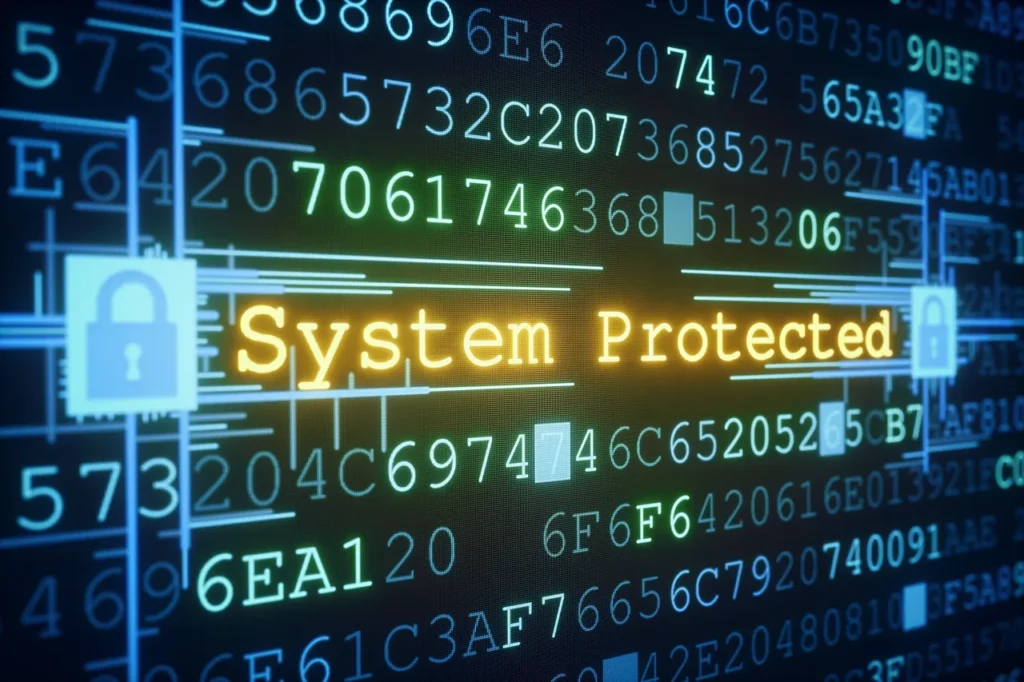
What is Compliance in Cyber Security?
Cybersecurity compliance is critical to protecting an organization’s sensitive information, personal data, and national security. With the growing dependency on technology and the internet, cyber threats such as data breaches, cyber-attacks, and financial losses have become a persistent concern for governments and businesses.
Compliance with industry standards and regulations is essential for protecting national security and avoiding these potential risks. Organizations must stay informed about the latest principles, best practices, and industry practices to take the necessary steps to comply with security and compliance.
Some actions organizations can execute; implementing robust security controls, conducting regular risk assessments, and providing cybersecurity awareness training for employees. Observation can help organizations secure sensitive data, prevent breaches, prevent cyber-attacks, and avoid financial losses from fines and penalties.
Additionally, compliance helps organizations protect national security by ensuring sensitive information and technologies are not compromised and maintaining a positive reputation by building trust with customers and partners. Furthermore, compliance helps organizations be inclusive and ensure that security controls and procedures are accessible to all, including individuals with disabilities.
Compliance and Security:
- Compliance with regulations helps organizations secure sensitive data and prevent data breaches: Compliance with regulations such as CMMC, NIST, DoD regulations, DFARS, ITAR, FedRamp, and HIPAA, to name a few, helps organizations implement the necessary security controls to secure sensitive data and prevent data breaches by identifying vulnerabilities, implementing access controls and monitoring for potential threats.
- Compliance helps organizations prevent cyber-attacks: Compliance with regulations can help organizations avoid cyber-attacks by implementing the necessary security controls, such as firewalls, intrusion detection, prevention systems, and encryption, as well as conducting regular security assessments and penetration testing.
- Compliance helps organizations avoid financial losses: Organizations that fail to comply with regulations can face hefty fines, penalties, and legal action, resulting in significant financial losses, reputation damage, and legal repercussions.
- Compliance helps protect national security: Compliance with regulations, such as those related to ITAR, helps protect national security by ensuring that sensitive information and technologies are not compromised and that the organizations handling it adheres to the highest security standards.
- Compliance helps organizations maintain their reputation: Organizations that comply with regulations can maintain a positive reputation, which is essential for building trust with customers and partners. Compliance demonstrates that an organization is committed to protecting sensitive information and personal data and operating ethically and responsibly.
In short, an essential aspect of compliance is ensuring that all individuals and groups are treated fairly and have equal access to resources and opportunities. In cybersecurity compliance, inclusion means considering the needs and perspectives of diverse groups, such as individuals with disabilities, and ensuring that security controls and procedures are accessible to all.
This includes providing alternative methods of access for individuals with disabilities and making sure that language and communication used in compliance documents and training materials are inclusive and accessible to all. Additionally, having a diverse and inclusive workforce is crucial to identify potential risks and vulnerabilities from different perspectives. By promoting inclusion, organizations can create a more secure and equitable environment.
Resources:
Export Administration Regulations (EAR)
- Export Administration Regulations (EAR) – Azure Compliance. https://learn.microsoft.com/en-us/azure/compliance/offerings/offering-ear
- https://www.bis.doc.gov/index.php/regulations/export-administration-regulations-ear
Recently Published Regulations
- https://www.bis.doc.gov/index.php/regulations
Commerce Control List (CCL)
- https://www.bis.doc.gov/index.php/regulations/commerce-control-list-ccl
Revisions to Definitions in the Export Administration Regulations
- https://www.federalregister.gov/documents/2016/06/03/2016-12734/revisions-to-definitions-in-the-export-administration-regulations
Cybersecurity Maturity Model Certification (CMMC)
Compliance Standards and Regulations
Insights into the State of Cyber Threats
Why CMMC Compliance Matters for Government Contractors?
DFARS and CMMC Compliance for Defense Contractors










